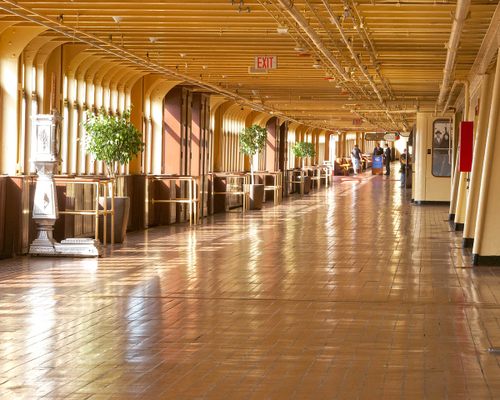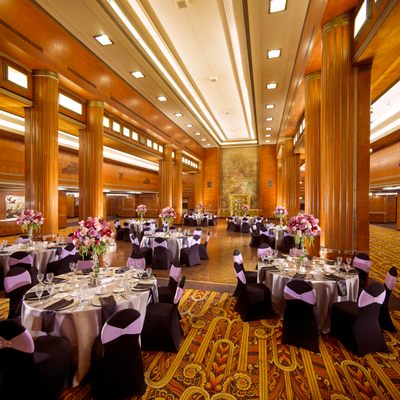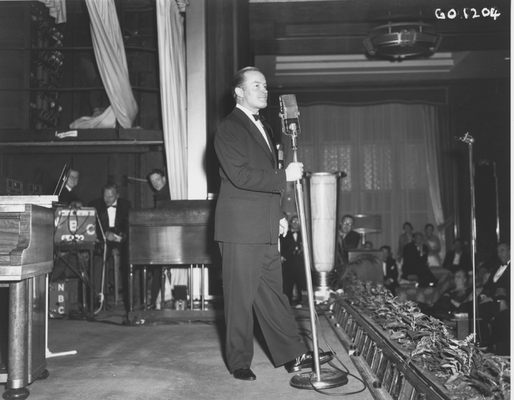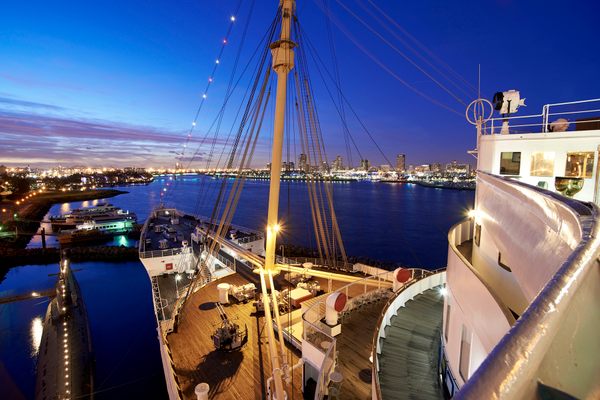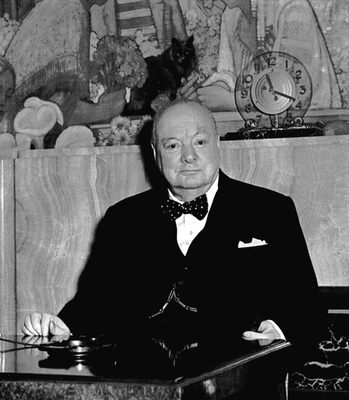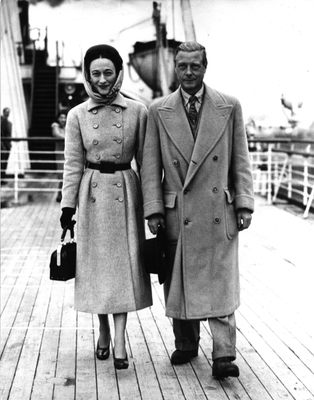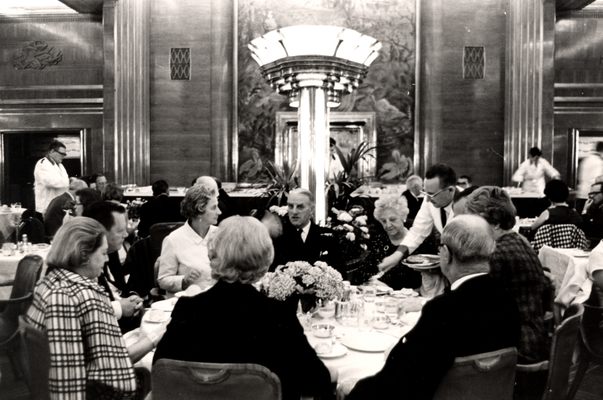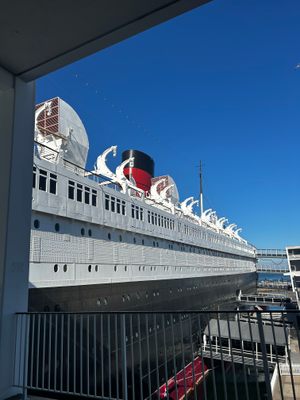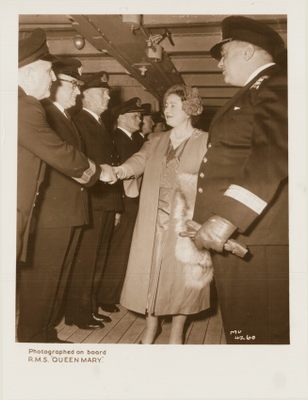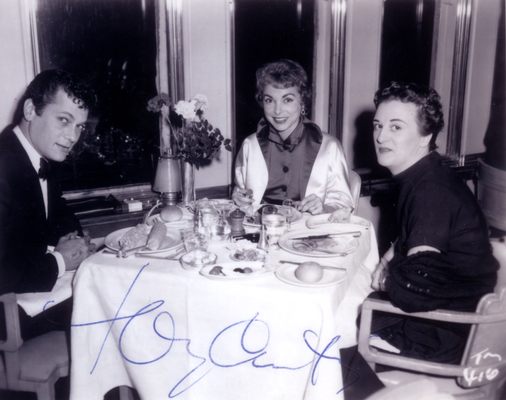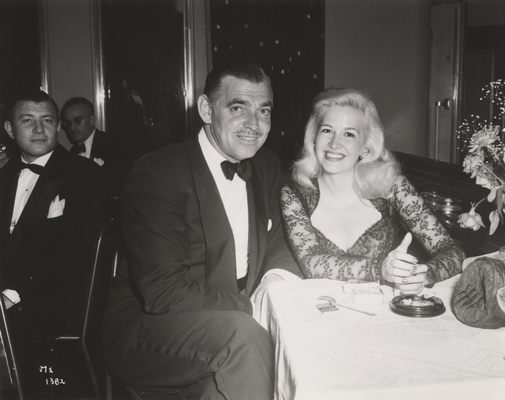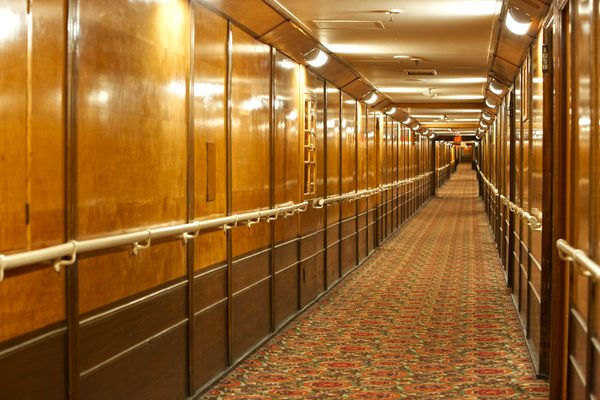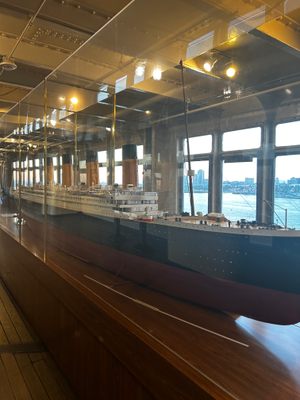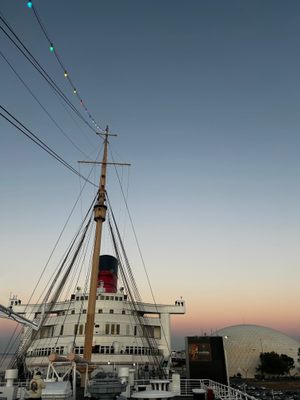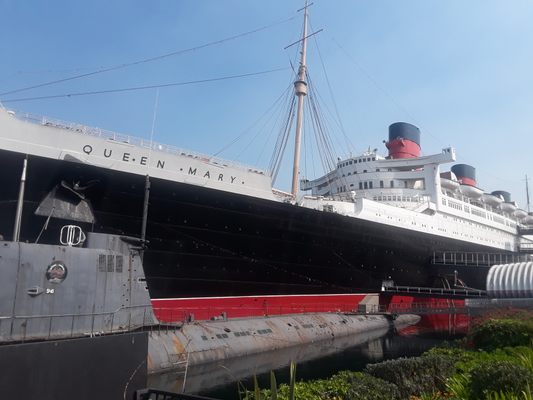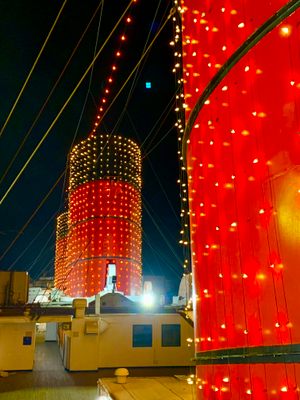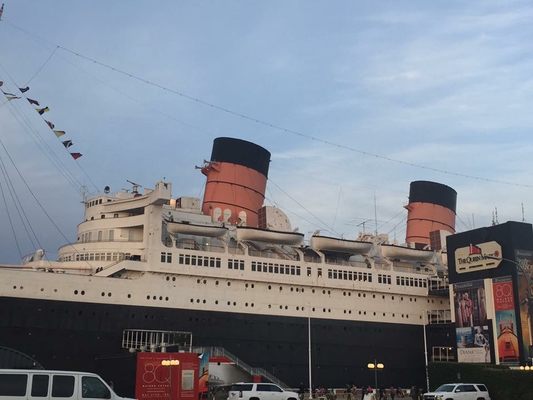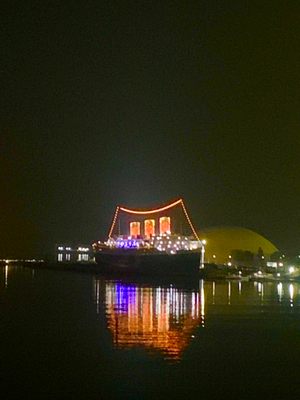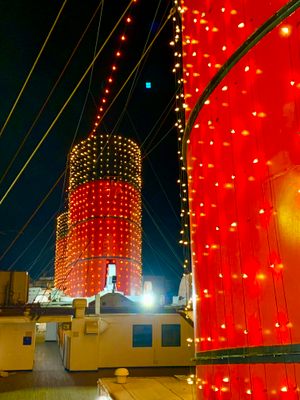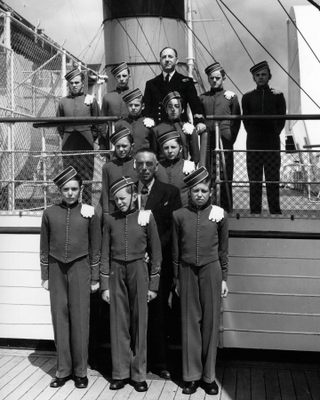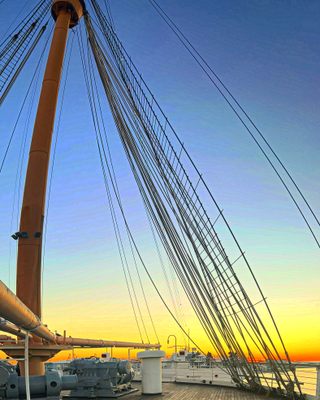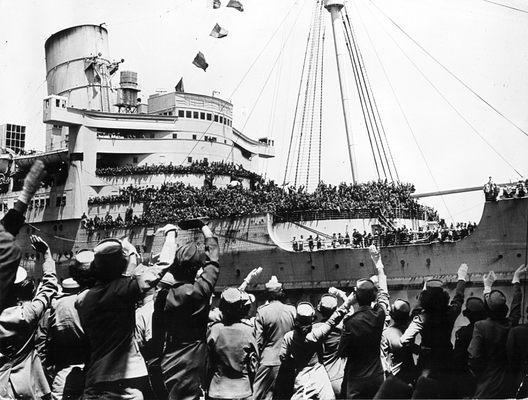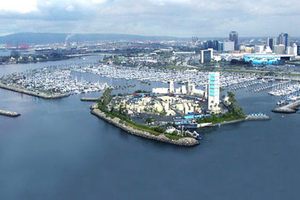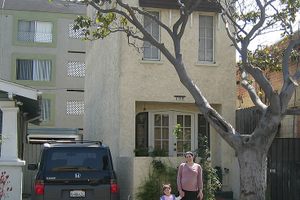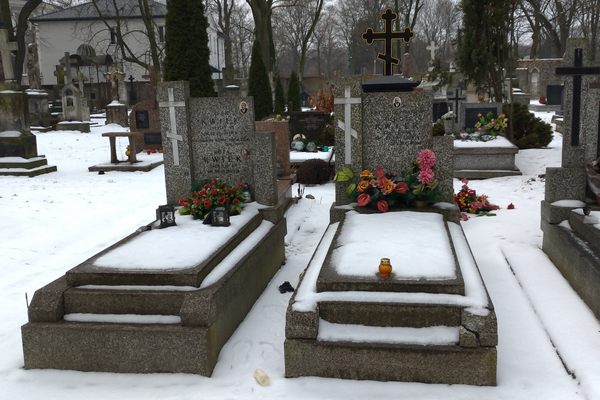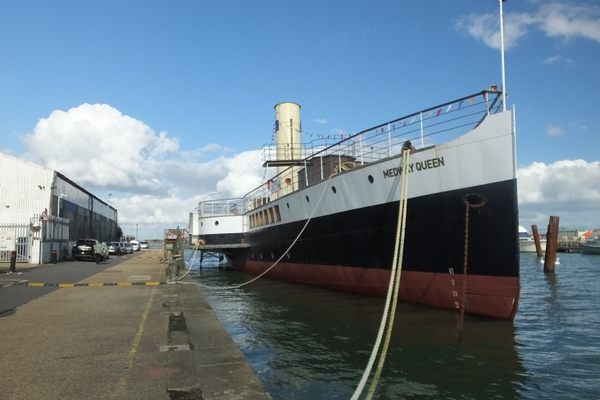About
Launched in 1934, the RMS Queen Mary was the jewel of the Cunard-White Star Cruise Line, dedicated to and christened by Her Majesty Queen Mary herself. The largest ocean liner of its time at 1,019 feet long, it was considered the fastest and most powerful, as well as the most beautiful. Adorned with the finest classical décor of the era, featuring ornate Art Deco interior, it is still considered to be one of the most elegant passenger ships ever built.
When World War II broke out, the Queen Mary was recruited because of its power and speed to transport Allied troops to war zones. It was fitted as a troopship in 1940, complete with armament and six-inch guns, and completely painted in dull flat gray to camouflage it from U-boats, earning it the wartime name of the “Gray Ghost.” From 1940 through 1945, the ship transported about 800,000 troops, sailed more than a half-million nautical miles, and made such a difference in helping the Allies win the war that Hitler himself put a $250,000 bounty on it.
When the war was over, the armament, guns, and other military equipment were removed and the Queen Mary was repainted and restored to its original grand state of luxury. It quickly returned to active duty as one of the most extravagant passenger ships, but now had also earned a heroic wartime reputation. During its time as one of the most famous ocean liners in history, the Queen Mary attracted celebrities and the elite in show business, politics, and business, including Winston Churchill, Mae West, Laurel and Hardy, the Duke and Duchess of Windsor, Tony Curtis, Clark Gable, President Dwight D. Eisenhower, Walt Disney, Elizabeth Taylor, the Kennedys, and Bob Hope, to name a few.
As transatlantic ocean liner traffic plummeted and air travel became more common, the financial decision was made to sell the Queen Mary, and the ship was retired in 1967, making its final voyage from Southampton to rest in Long Beach Harbor in California. In order for it to accommodate the expansive plans as a Long Beach tourist attraction, significant restructuring, refurbishing, and renovating was performed, including the complete gutting of lower sections of the ship below “R” deck and the removal of the boilers, forward engine room, and stabilizers. As a hotel and museum, the ship allowed thousands of guests each year to relive history and experience first-hand what the majestic transatlantic life was like in an era gone by.
With its rich history before, during, and after the war, it is no surprise that the Queen Mary has seen more than its share of joy and grief, good fortune and tragedy, life and death. Once it finally came to rest, permanently motionless in the Long Beach harbor, stories of ghosts and unexplained phenomena were reported. Eyewitness accounts began with the workers who first started converting and refurbishing the ship upon its arrival and has continued on to this day with encounters of ghostly phenomena. From maids to security guards, cooks to administrative staff, reports of supernatural events have come from all manner of the Queen Mary’s staff. And from visitors: Whether guests spending the night or just a tourist visiting for the day, people from all walks of life and of all ages have reportedly had supernatural experiences.
As a result of the ongoing reported haunt phenomena on the ship, in 1990 the management of the ship brought in world-renowned Parapsychologist and Anomalist Christopher Chacon to an investigation of the phenomena. His investigation involved an in-depth analysis from bow to stern, and everywhere in between, of every aspect of the ship’s environment, from radiation to light spectrum, from electromagnetic fields to chemical content, continuing around-the-clock for 18 months. Additionally, some 1,600 individuals were interviewed and assessed, half of them having reported some type of supernatural occurrence and the other half not having reported anything (presumably the control group).
Some of the deaths documented onboard the ship have been associated with ghostly encounters. To name a few: the ship’s captain dying of a stroke in his cabin before the ship set sail in 1936; the tragic wartime sinking of the HMS Curacoa in 1942 when it was accidentally split in two by the Queen Mary, killing some 337 men; the accidental poisoning death of a senior crewman in 1949; a crewmember that was crushed in 1966 during an emergency drill. The combination of documented deaths and chilling supernatural encounters has given the ship the reputation of being one of the world’s most haunted places.
Related Tags
Know Before You Go
The Queen Mary and its associated restaurant and hotel have been reopened to the public as of October 2023.
Community Contributors
Added By
Published
June 25, 2018


